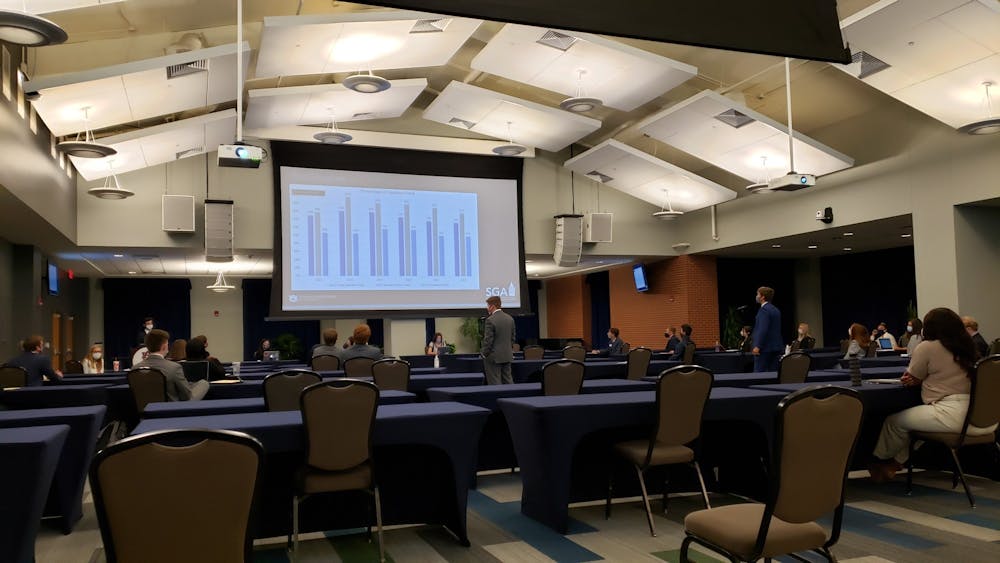During the Auburn Student Government Association’s Sept. 22 Senate, senators went to the floor to debate the merits of revising the ticketing system for SGA elections.
After the Sept. 14 meeting, Hays Kassen, SGA vice president and senior in accounting, said Senate decided to move the meetings to in-person from only virtual in an effort to have more participation. Their hopes were fulfilled as senator after senator went to the floor to share their opinion on the bill.
In the meeting, one of the bills SGA sought to pass was dubbed the ‘Two-Thirds Bill,’ meant to reform the way the ticketing systems worked. In previous elections, parties could have tickets that encompassed all of a college’s senators as well their student council president and vice president.
“They felt that it was impairing the impartiality and the equability of the entire elections process,” said Cole Callahan, junior in biomedical sciences and a senator for COSAM. “So, the Two-Thirds Bill is two-thirds of the total amount of positions can be filled. Like in COSAM, only three out of the five positions we have would be able to be put on a ticket.”
Callahan was the first to hit the floor after the bill was introduced by senators Graf Sullivan, junior in civil engineering, and Gavin McElroy, sophomore in political science. Cole began his presentation by asking everyone in the room to raise their hand if they were a part of Greek life, and all but four students did out of 30 senators. The goal of that demonstration, he said, was to open the floor up to discussion that the bill could be made more equitable in the future.
“The problem that I felt, as well as many of my constituents and fellow senators, that although this is attempting to reform the impartiality, a bigger conversation needed to be present at the beginning,” Callahan said. “Which is that the monetary values pose a bigger threat than we have been discussing.”
For students to run, the budget range is somewhere from $175–200, Callahan said. As of now, Greek organizations are the only ones that have the ability to promote and fund candidates from their organizations. Callahan said he feels if one organization is allowed to explicitly promote and fund candidates, then all of them should be allowed to.
“I’m on the budget and finance committee, and we’ve been talking all summer long about how student activities fee is money paid by every student to guarantee equal access in resources,” he said. “To me, it does not feel correct or fair if this organization is promoting those funds, and none of them are being allocated back to the student body for every student to have the same ability and opportunity to pursue the same organization that’s been approving the money.”
Despite this, Callahan said he was not debating for the sake of not passing the bill. Rather, he wanted senators to acknowledge that it didn’t fully fulfill the function that it intended, which was more equitability.
Other senators also went to the floor to ask and answer questions and defend the bill. It was voted on and adopted; with that, more discussion would happen in the future in regards to the ticketing system, costs and the election process.
Do you like this story? The Plainsman doesn't accept money from tuition or student fees, and we don't charge a subscription fee. But you can donate to support The Plainsman.





